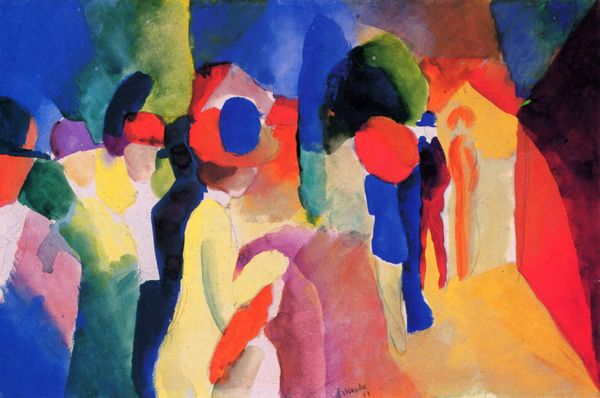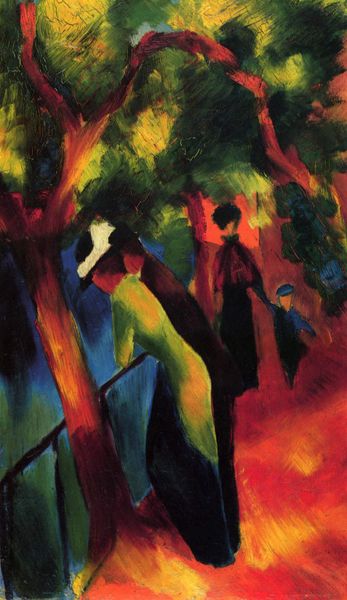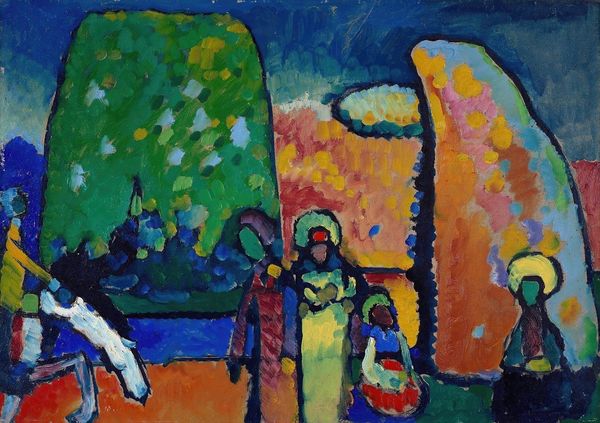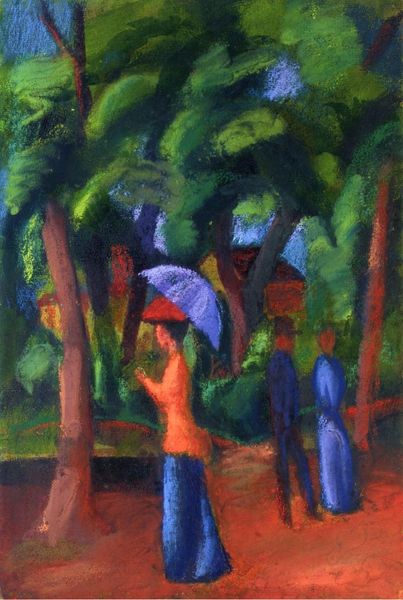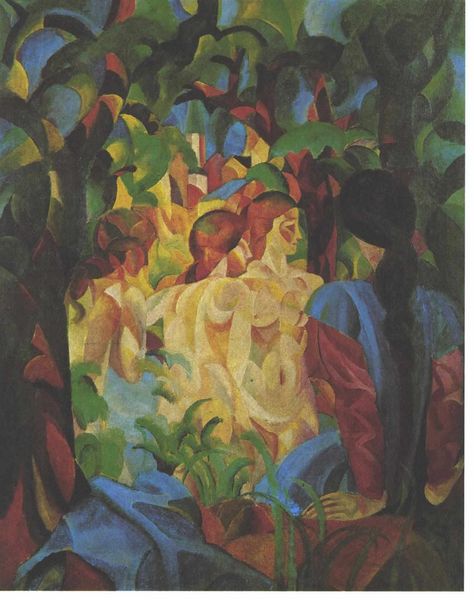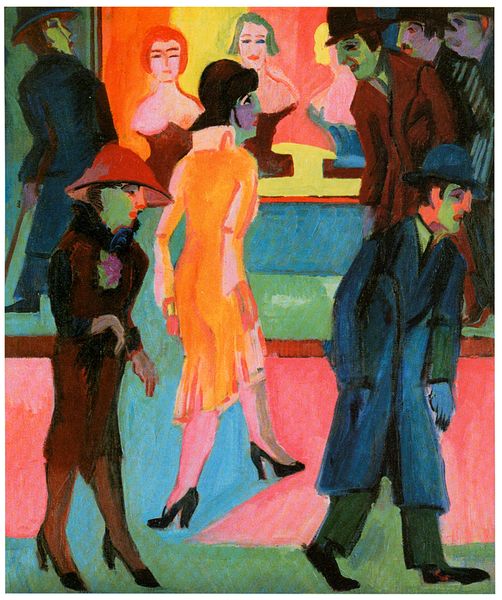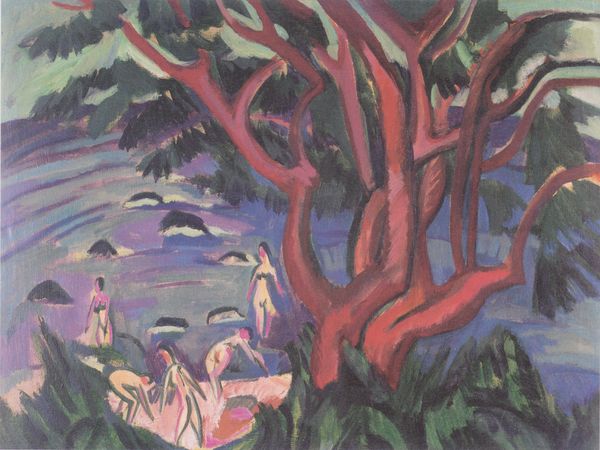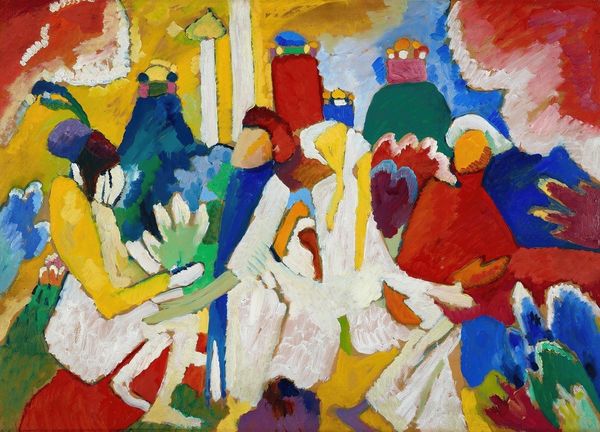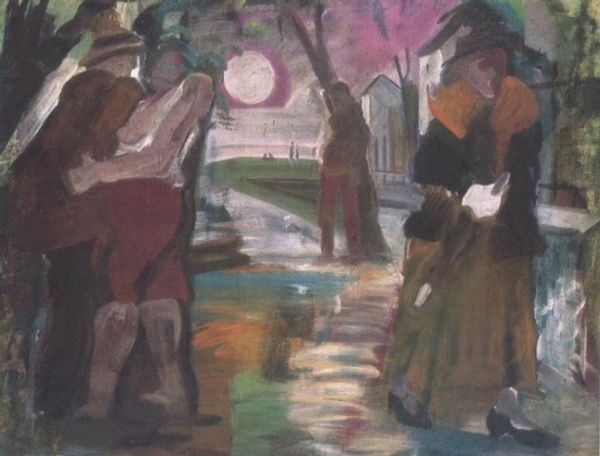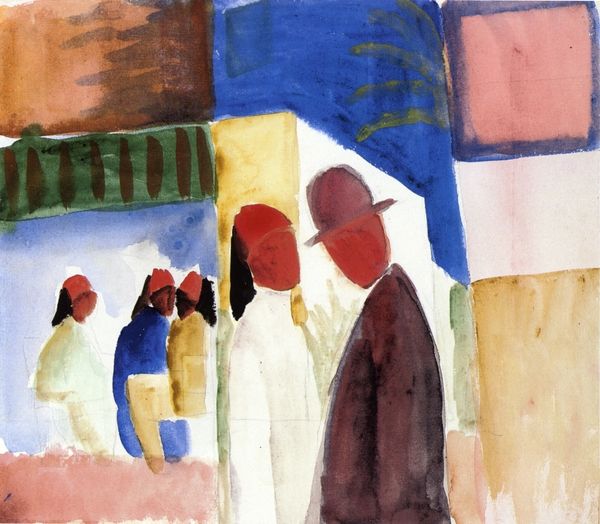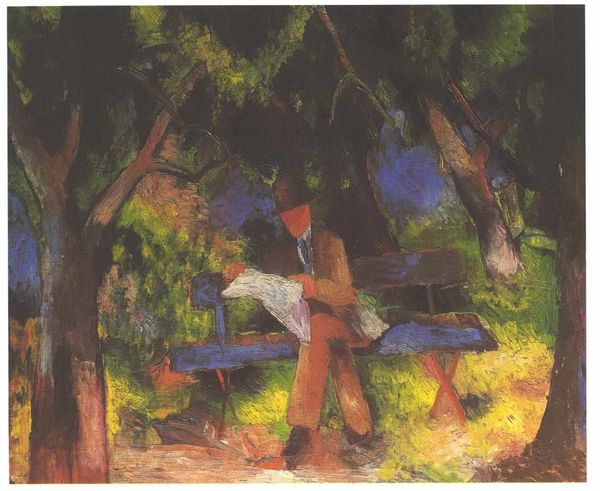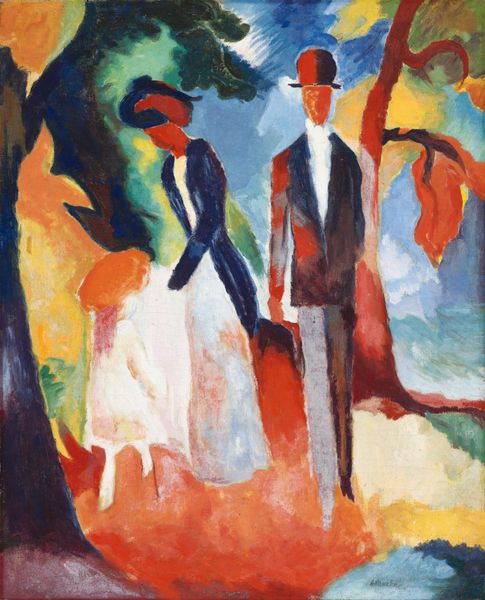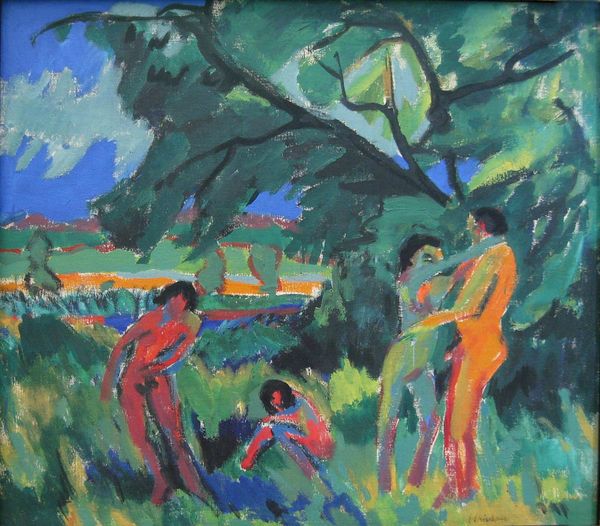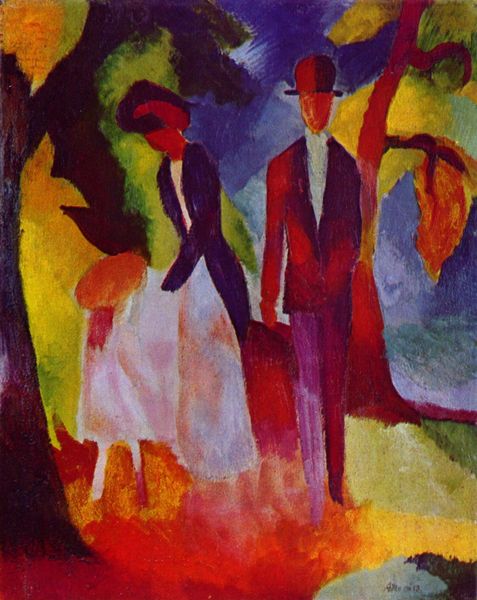
oil-paint
#
portrait
#
tree
#
garden
#
oil-paint
#
landscape
#
oil painting
#
expressionism
#
park
#
cityscape
#
expressionist
Copyright: Public domain
Editor: This is "Woman in a Green Jacket," painted by August Macke in 1913, using oil paint. There's a beautiful calmness to it, even though the colors are quite bold. How do you interpret this work? Curator: Macke's work, especially this piece, is ripe for examining the intersections of class, gender, and leisure during the pre-war era. The figures are part of the bourgeoisie, enjoying a leisurely stroll, but what does it mean to portray these specific figures in 1913, just before the outbreak of World War I? How does Macke’s decision to render the figures without individualizing facial features, impact the way you consider the individuals portrayed? Editor: It's interesting to consider their anonymity. Maybe it's a commentary on the conformity of the upper classes? Curator: Precisely. And we might also explore Macke’s engagement with avant-garde movements while consciously painting leisure scenes which directly place him within—or perhaps in conflict with—the social structure he’s depicting. Do you see a tension there? The stylized trees, the flattened perspective... it points towards modernism. Yet the subject matter remains comfortably bourgeois. Editor: Yes, that tension is definitely there. It feels almost subversive. It makes you question the purpose of the painting. Curator: It also forces us to acknowledge that even revolutionary artistic languages can be deployed in the service of documenting, even celebrating, a particular social order. Macke tragically died in World War I. How do you think that knowledge alters our view of his paintings depicting scenes of pre-war idyll? Editor: Knowing that, there is a real sense of foreboding in what seems like a calm, upper class day out. Curator: It really highlights the way historical context shapes our understanding, doesn't it? Editor: Absolutely. I'll never look at an Impressionist park scene the same way again.
Comments
No comments
Be the first to comment and join the conversation on the ultimate creative platform.
